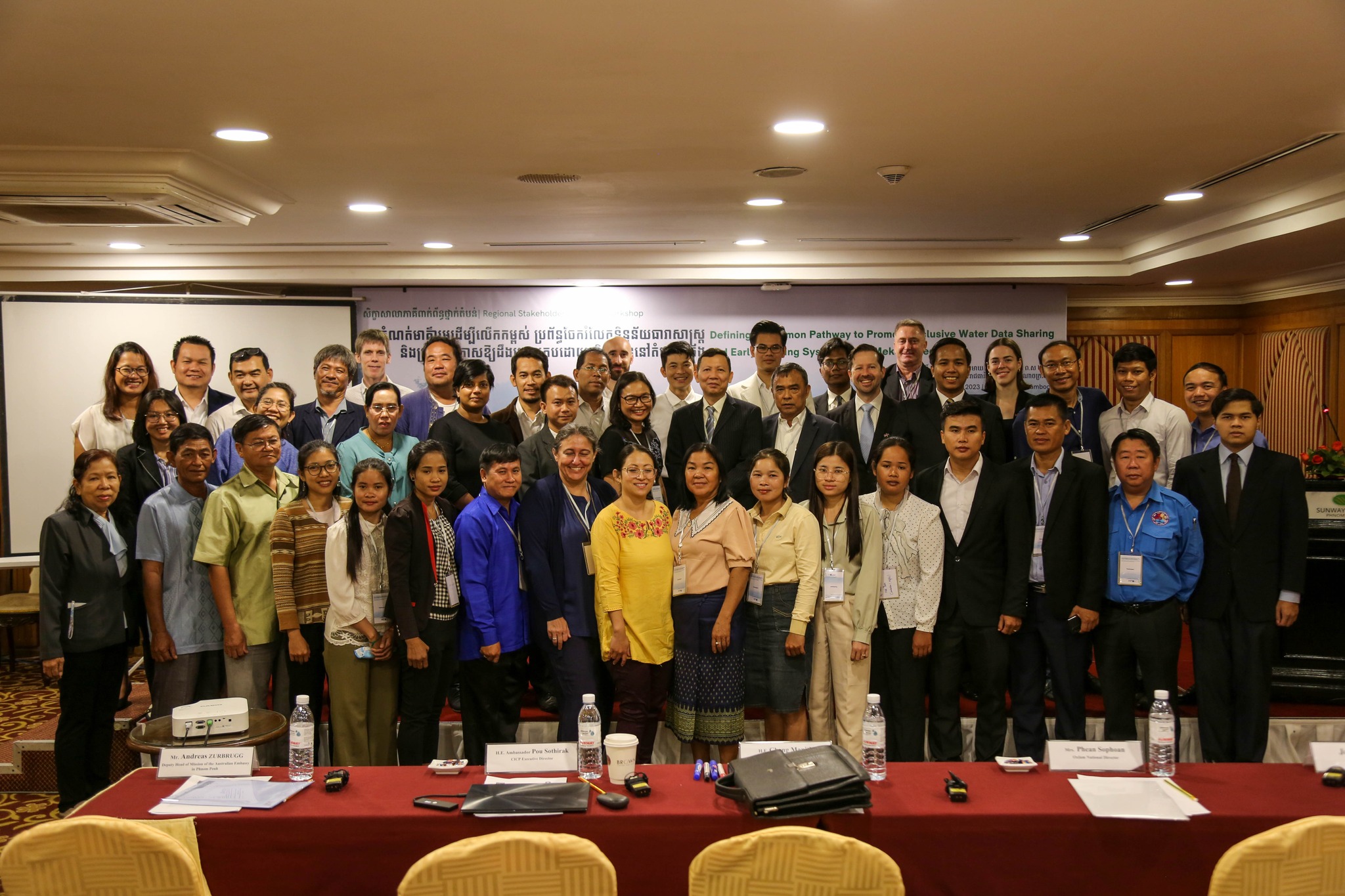Oxfam Cambodia and the Cambodian Institute for Cooperation and Peace co-organized a Regional Stakeholders Learning Workshop on the theme of “Defining a common pathway to promote inclusive water data sharing and early warning system in the Mekong region” from 9th – 10th February 2023 at Sunway Hotel, where more than 60 stakeholders and experts across the region were invited to join. This workshop is supported by the government of Australia.
Drawing on the need to strengthen climate resilience (SCR) in the Mekong Sub-region as part of the Mekong Regional Water Governance Program, this regional workshop aims to (1) review stakeholder knowledge of and engagement with an existing platform to determine the level of usage; (2) map out challenges in access and usability of data in the community especially, women, IP and community group who are the most vulnerable; and (3) identify how the challenges could be addressed and agreed on action toward inclusive data sharing mechanism/actions.
Amb. Pou Sothirak, Executive Director of CICP gave closing remarks sharing his views about this regional stakeholder workshop as follows.
The Cambodian Insitute for Cooperation and Peace is delighted to be able to co-organize this important workshop with Oxfam Cambodia. Although at the end of the workshop, we feel a sense of fulfillment, however, there remain persistent constraints related to both technical and non-technical issues that have to be overcome for the free flow of water data to be made available for the grassroots communities throughout the Mekong riparian countries.
The workshop is useful and a rare opportunity created by the organizers, for all grassroots communities from Cambodia, Laos, Thailand, and Vietnam to learn and gain better knowledge of various relevant platforms and engage with other stakeholders to strike a balance between the full benefits of development, social justice, and environmental sustainability, thereby improving their understanding as to why a transparent and effective data sharing arrangement on how water and related infrastructures are operated on the Mighty Mekong River can help everyone benefit in managing risks and avoid misperception.
During the workshop, participants welcome the news that there have been more data-sharing platforms about the Mekong with increased openness among key frameworks such as the Lancang-Mekong Cooperation (LMC) mechanism, the Mekong River Commission (MRC), and various NGOs, but they still express concern over the effects of climate change and lack of access of water data.
There are efforts from the part of the regional governments and development partners in working together to help mitigate the cumulative impacts of infrastructure development on water resources; save lives, livelihoods, and property from potentially devastating floods and droughts; and help natural resources to be used sustainably. The challenges remain, however, how to navigate potential pitfalls related to the technical know-how of the currently available platforms and how best to standardize and harmonize them and put them into good use as effective water data-sharing platforms.
The harmonization and standardizing processes required full participation from all stakeholders, including the grassroots communities.
There seems to be a more profound difficulty related to the conflict of interests, more often deriving from political consideration rather than technical between and among governments of the riparian countries for the free-flowing water data sharing and their development partners. Unless trust and confidence can be achieved from all stakeholders, a common pathway to promote inclusive water data sharing and an early warning system in the Mekong region remain illusive and difficult to achieve. All of us must work collaboratively to safeguard the Mighty Mekong River.










